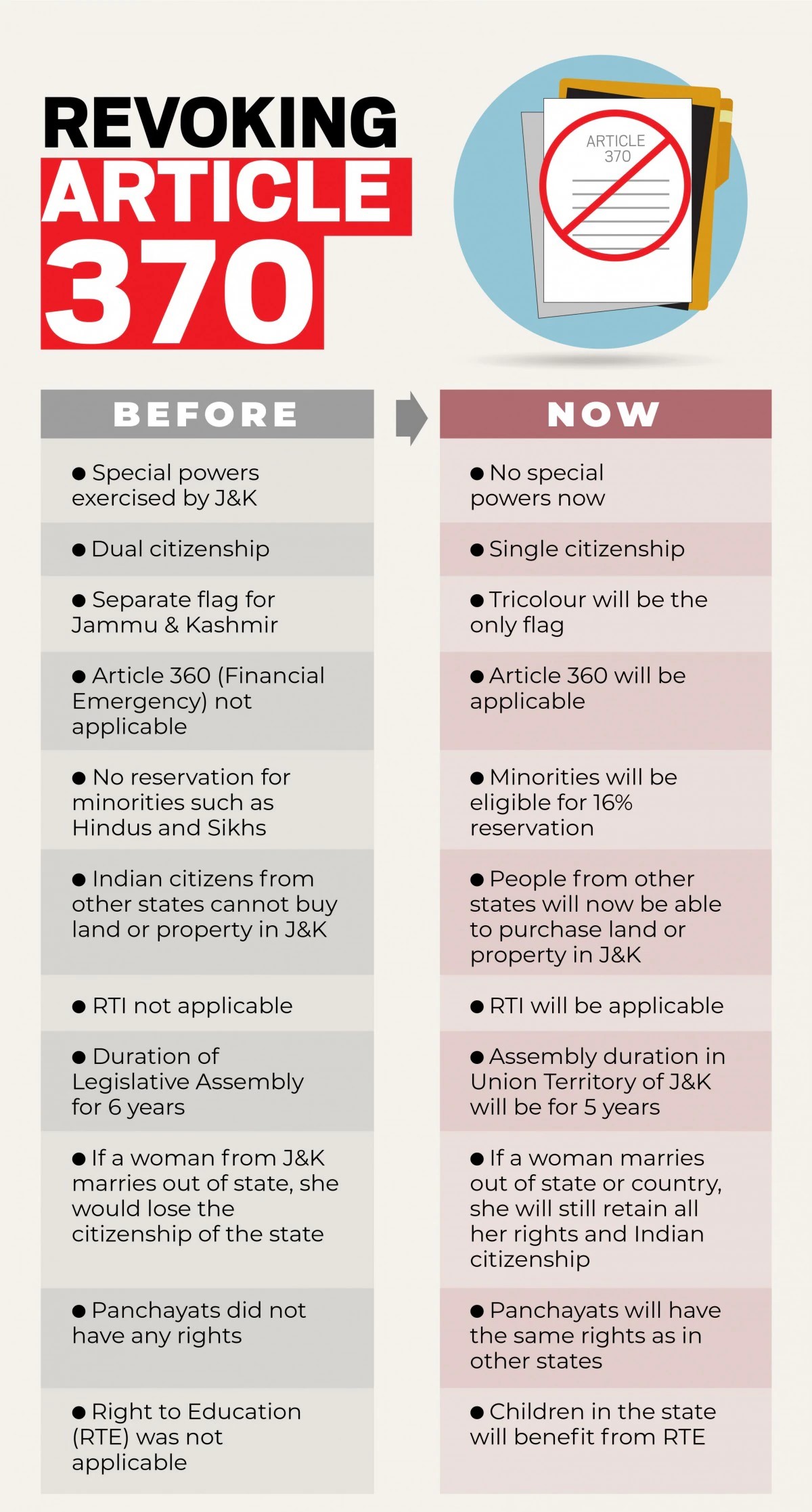

SC Upholds Repeal of J&K’s Special Status
Syllabus:
GS-II; Polity and Governance.
Context:
A Constitution Bench of the Supreme Court unanimously upheld the power of the President to abrogate special status of Jammu and Kashmir under Article 370 of the Constitution.
Key Highlights of the Judgement:
- President’s power: President could “unilaterally issue a notification that Article 370 ceases to exist’’.
- President had the power to do so “if special circumstances warrant a special solution”.
- Collaborative exercise: President’s decision in August 2019 was the culmination of a “gradual and collaborative exercise” spread over the past 70 years between the Centre and the State to integrate Jammu and Kashmir with the Union.
- Objective of the integration process: was to make the entirety of the rights and obligations enshrined in the Indian Constitution applicable to the people of Jammu and Kashmir.
- Truth and Reconciliation Commission: The court proposed the setting up of a Truth and Reconciliation Commission to reach out to the people who suffered from inter-generational trauma caused by violence and mass migration.
- Redundant constitution: The court declared the Jammu and Kashmir Constitution “redundant” and “inoperative”.
- Upheld UT of Ladakh: The Bench further upheld the carving out of the Union Territory of Ladakh from the State of Jammu and Kashmir.
- Restore Statehood: It accepted the assurance of the Centre to restore Statehood to Jammu and Kashmir “at the earliest” and directed the Election Com
 mission of India to hold Assembly polls by September 30, 2024.
mission of India to hold Assembly polls by September 30, 2024.
Background:
- Under Clause (1) of Article 370 of the Indian Constitution, the President of India issued the Constitution (Implementation to Jammu and Kashmir) Order, 2019 on August 5, 2019, repealing the special status previously accorded to Jammu and Kashmir.
Article 370:
- It was included in the Constitution on October 17, 1949.
- Article 370 exempts J&K from the Indian Constitution (except Article 1 and Article 370 itself) and permits the state to draft its own constitution.
- It restricts Parliament’s legislative powers with respect to J&K.
- For extending a central law on subjects included in the Instrument of Accession (IoA), mere “consultation” with the state government is needed.
- The IoA gave Parliament the power to legislate in respect of J&K only on Defence, External Affairs and Communications.
- But for extending it to other matters, “concurrence” of the state government is mandatory.
Article 35A:
- Article 35A stems from Article 370. It was not passed as per the amending process given in Article 368, but was inserted on the recommendation of J&K’s Constituent Assembly through a Presidential Order in 1954.
- Article 35A empowers the Jammu & Kashmir legislature to define the permanent residents of the state, and their special rights and privileges.
- It appears in Appendix I of the Constitution.
Subject: Polity and Governance;
Topic: Federalism, Constitutional Amendments;
Issue: Article 370;
Source: Indian Express.
Source: Indian Express
Download PDF
PDF Download
You need to be logged in to download this PDF.
